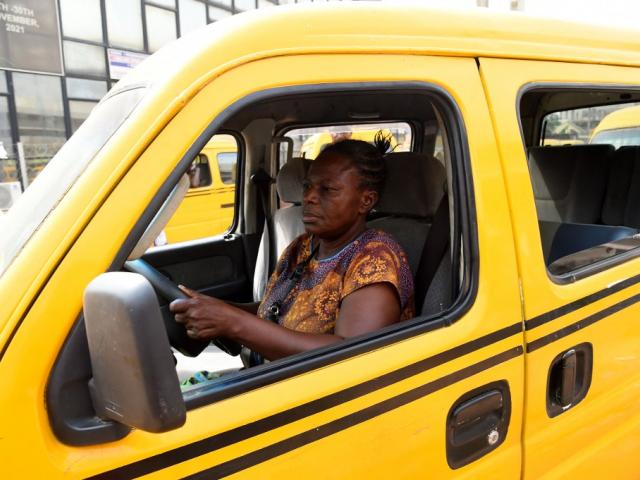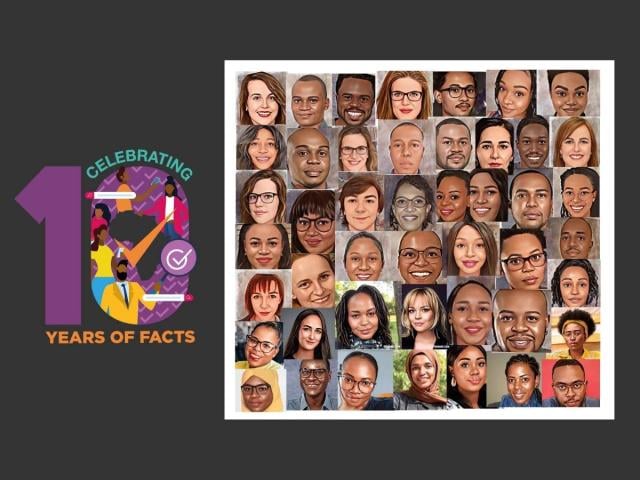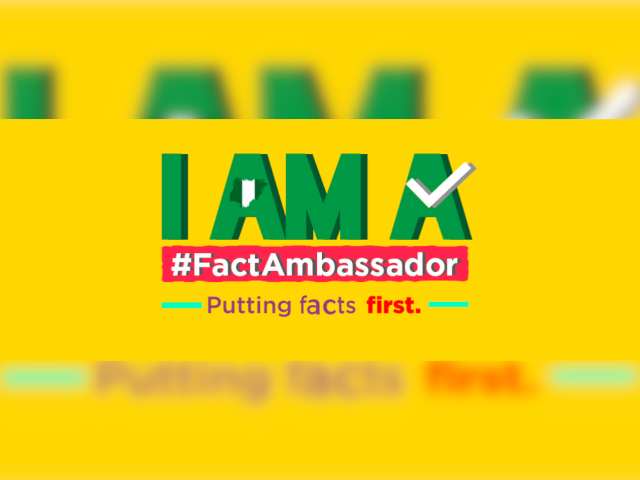As the world recovered from the Covid-19 pandemic and an online lifestyle became more entrenched, I became interested in how people were accessing good information.
That curiosity saw me enrol in the Digital Sherlocks programme with the Digital Forensics Lab to learn more about open source investigations, and with Tactical Tech to learn more about investigating the influencer industry.
With the skills learned, I was ready to get my hands dirty. I wanted to research disinformation. As fate would have it, I joined Africa Check shortly after. Before that, I had worked on research in digital rights, online communities and technology policy, and also investigated how technology affects women, minors, the disabled and the elderly.
When subject-matter experts disagree … and it’s your first fact-check
My first assignment was to find out whether apple cider vinegar can eradicate Helicobacter pylori (H. pylori). H. pylori is a stomach bacteria that affects the acidity of the stomach. I came by this claim from a widely shared post on Facebook where the user wrote about his personal experience with the infection and what he believed healed him.
H. pylori has been a hot topic in Kenya, a public health concern that has captured headlines in the country. At the time some friends and a member of my family were all battling the infection. Seeing the virality of the anecdotal evidence that apple cider vinegar could treat the bacteria, I knew I needed to research this, to make sure that people didn’t opt for unverified cures.
I reached out to at least seven medical experts familiar with alternative medicine who had also published research on apple cider vinegar and the H. pylori bacteria. Four responded. For every expert who refuted the claim, another supported it. My findings were therefore inconclusive - not a very promising start to my fact-checking journey.
Months later, I am still trying to untangle the facts about the effectiveness of apple cider vinegar on the stomach bacteria, by speaking to more experts, in a patient hunt for the smoking gun that proves or disproves the claim.
Lesson: Fact-checking takes time and demands patience.
The ebb and flow of false information
As I tracked down falsehoods online, I quickly noticed a pattern. Whenever there was a big event related to elections, there was a spike in false information. It seemed the merchants of disinformation tracked the news cycle.
We saw this when political parties in Kenya were nominating candidates for various seats, ahead of manifesto launches when a fake manifesto was published, after the presidential debate with made-up polls, and on voting day when false results were published.
The fabricated content continued during the hearing of the presidential election petition in the Kenyan supreme court, on election day, on inauguration day, and even on national holidays.
It was helpful that Africa Check anticipated these trends and developed a factsheet on elections, guides on verifying breaking news and opinion polls, and quick tips on how to spot falsehoods.
The Media Council of Kenya, which prescribes journalism standards in the country, reported glaring instances of mis/disinformation spread during the electioneering period.
Getting subject-matter experts to help debunk falsehoods was also a problem. When checking some claims made in the presidential debate, a professor at a Kenyan public university told me that he didn’t want to comment so as not to appear to be supporting one of the political camps. He was thinking more about survival beyond the election, and less about the information pollution in his area of expertise.
Even thinktanks which had for years been very vocal on key issues insisted on speaking off-the-record, which fell short of our transparency requirements as fact-checkers.
In this instance, I instead reached out to foreign experts who had researched the same topic in Kenya, and quickly got my answers.
This was the first time I was monitoring an election as a fact-checker, and it was an intense and exhilarating experience.
The politics of information access
Accessing information in Kenya can be complicated.
Even after you introduce yourself as a researcher with a fact-checking organisation, the people who are by law required to give information keep asking:
- “Who are you?”
- “Why do you want this information?”
- “Who are you working for?”
After you exhaustively answer these questions, the famous four words follow: “Send an official request.”
When you comply and send in the official request, the request is sometimes not even acknowledged. But you might get these unhelpful answers:
- “It is not in our policy for us to share that type of information.”
- “We must get approval before sending you that information and the principal secretary is away,” with no indication of when the responsible officer returns, how to seek that approval, or who else could grant the approval.
In a high-pressure situation such as election fact-checking, the bureaucrats are often waiting you out until after the elections. By then, it’s too late to give voters information to assist them in making informed decisions.
One such quest was when I set out to investigate the accuracy of a claim by the former Kenyan president Uhuru Kenyatta that “75% of Kenyans had access to electricity”.
I shot a few straight questions to the energy ministry, who sent me to the state-owned utility firm, Kenya Power. I just wanted to know how Kenyatta’s numbers were calculated: the formula for it and the figures that gave the 75% answer. I also wanted to know if it referred to households connected to electricity, or individual Kenyans with access to electricity.
To this day these questions remain unanswered. We will keep trying to get answers, as we want to give Kenyans a verifiable baseline to hold the new administration to account.
Kenya has an access to information law, but even so, it is slowly executed and the culture of secrecy and opaqueness in government remains widespread, according to Article 19, an information and free expression non-profit.
It is frustrating that the custodians of quality information hide behind bureaucracy, to keep the public in the dark.
‘Do you think fact checkers are actually moving the needle towards eradicating disinformation?’
In the past year, I have encountered this question several times, at events I have attended, during online discussions and media interviews, and even in circumstances where I wasn’t wearing my fact-checker’s hat.
Often, people ask this question in a moment of frustration. The barrage of disinformation online and on social media is a heavy cross to bear. I also did not have an answer to this question at the beginning of the year.
But I have been persuaded by research which revealed that the “ambiguously informed” showed improvement after reading a fact-check. While some have argued that a “backfire effect” could lead the misinformed to not update their false beliefs, even when presented with factual information, I have seen credible research that has shown that fact-checking worked, and the backfire effect was a myth.
Changing behaviour and perceptions is painstaking labour, but after one year working at Africa Check, I can without a doubt say this work is important and has great impact.
If there’s one thing I tell anyone who makes a startling claim, it is that they have to verify before sharing. And yes, I am still fun at parties.









Add new comment